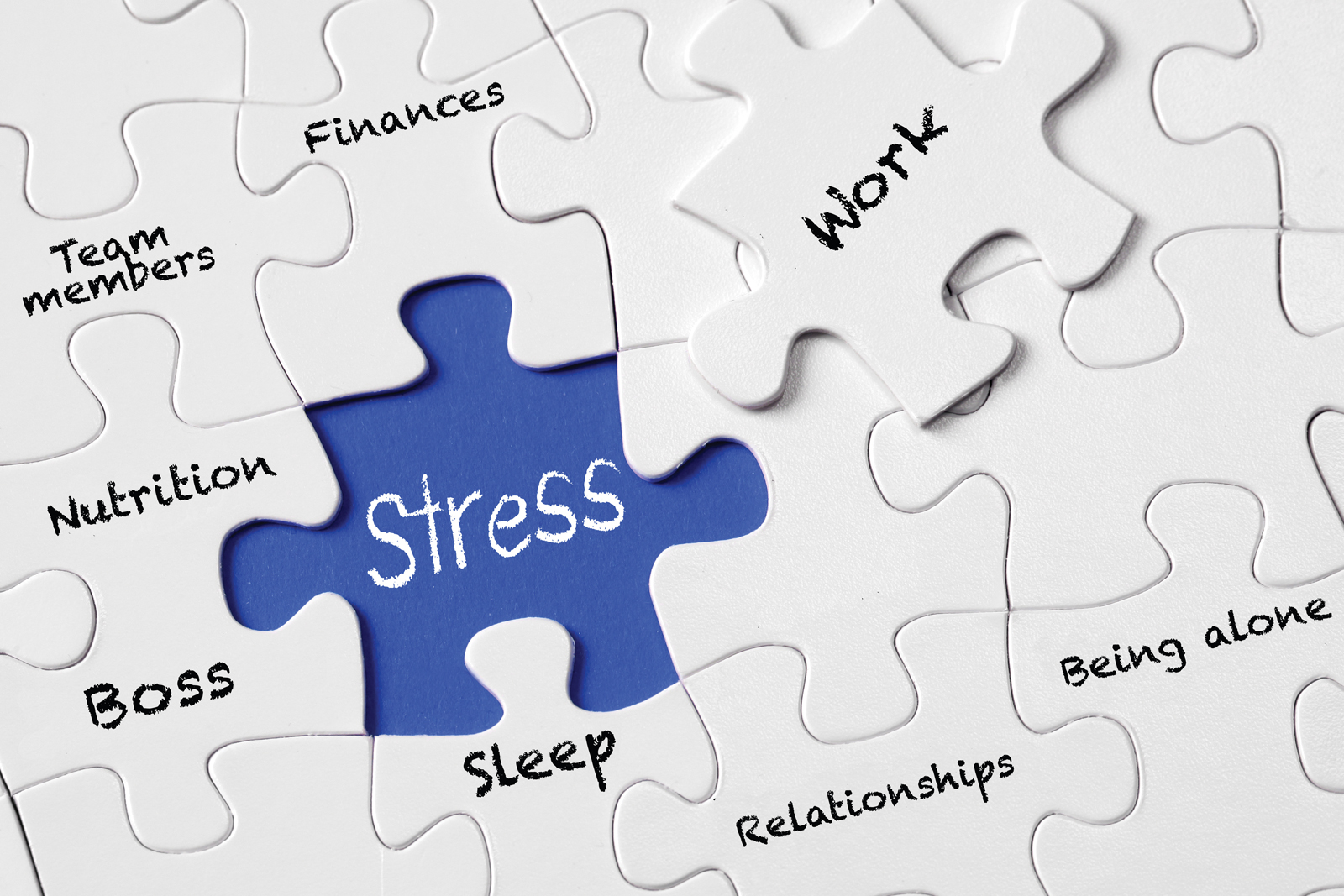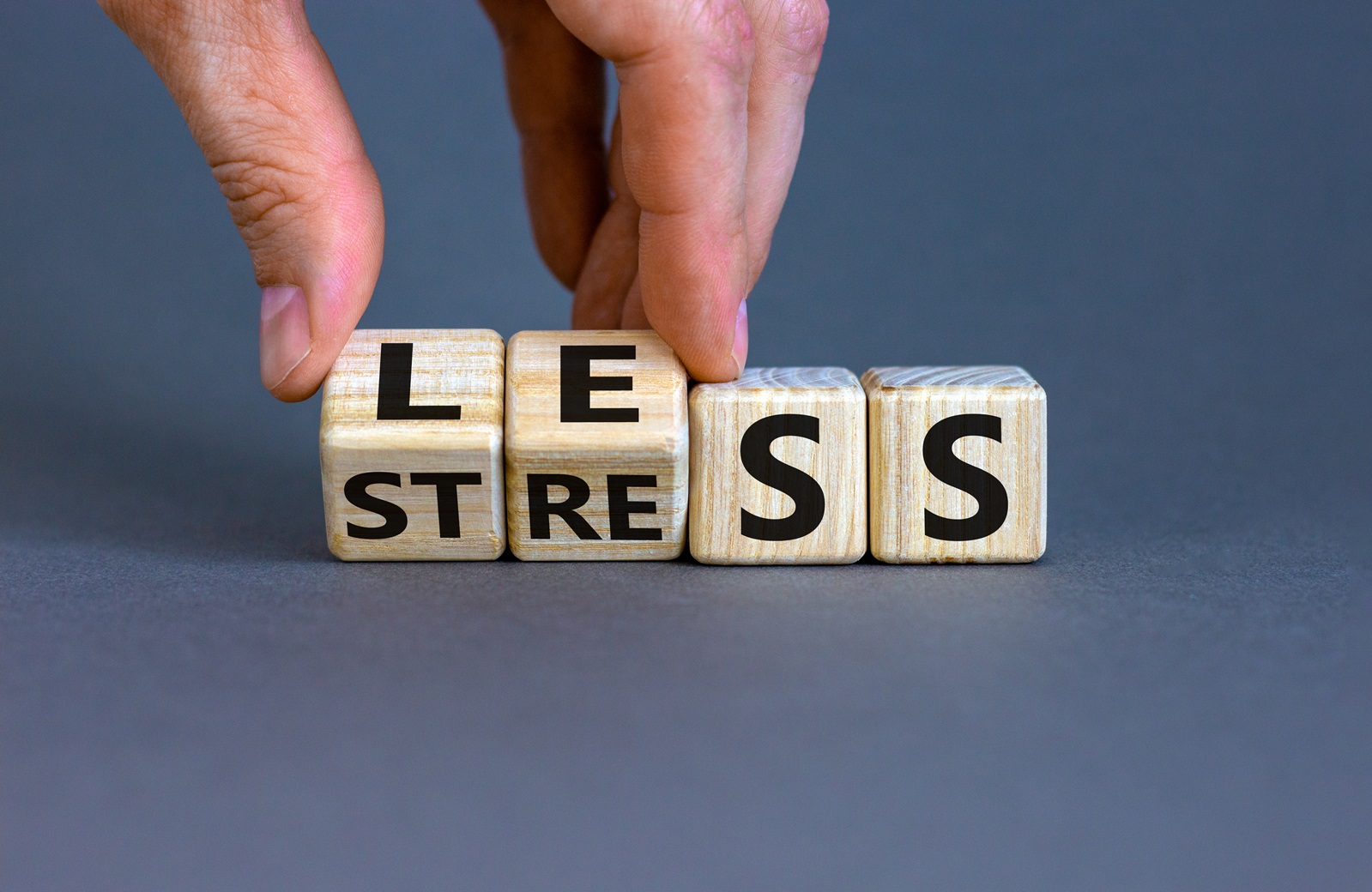Stress and anxiety are common human emotions that can have a negative impact on our physical and mental health. However, there are a number of things we can do to manage these emotions and improve our overall well-being.
Identify Your Stressors
What are the things in your life that cause you to feel anxious or stressed? Once you know your stressors, you can start to develop strategies for coping with them.
Identifying your stressors is the first step in managing anxiety and stress. Stressors can be anything that causes you to feel anxious, stressed, or overwhelmed. They can be big or small, and they can be internal or external.
Internal stressors are things that come from within you, such as negative thoughts, worries, and fears. External stressors are things that come from outside of you, such as work, relationships, and financial problems.
To identify your stressors, start by keeping a stress journal. For a week or two, write down everything that causes you to feel stressed or anxious. Include both the big and small stressors, as well as the internal and external stressors.
Once you have a list of your stressors, take some time to reflect on them. What are the common themes? Are there any stressors that you can eliminate or reduce? Are there any stressors that you need to learn to cope with more effectively?
Here are some tips for identifying your stressors:
- Pay attention to your body. When you feel stressed or anxious, your body may react in physical ways, such as sweating, increased heart rate, or muscle tension. Pay attention to these physical cues to identify your stressors.
- Think about your thoughts and feelings. What are you thinking and feeling when you feel stressed or anxious? Are there any negative thoughts or worries that keep popping up? Once you identify your negative thoughts, you can start to challenge them and replace them with more realistic and positive thoughts.
- Talk to someone you trust. Talking to a friend, family member, or therapist can help you to identify your stressors and develop coping mechanisms.
Once you have identified your stressors, you can start to develop strategies for coping with them. There are many different coping mechanisms available, such as relaxation techniques, time management skills, and problem-solving skills. Experiment with different coping mechanisms to find what works best for you.

Make Lifestyle Changes
Eating a healthy diet, getting enough sleep, and exercising regularly can all help to reduce anxiety and stress levels. Avoid caffeine and alcohol, as they can worsen anxiety symptoms.
Making lifestyle changes is an important part of managing anxiety and stress. Lifestyle changes can help to improve your mood, reduce stress hormones, and make you more resilient to stress.
Here are some lifestyle changes that can help to manage anxiety and stress:
- Eat a healthy diet. Eating a healthy diet can help to improve your mood and reduce stress hormones. Avoid processed foods, sugary drinks, and excessive amounts of caffeine and alcohol. Instead, focus on eating whole, unprocessed foods such as fruits, vegetables, whole grains, and lean protein.
- Get enough sleep. When you’re well-rested, you’re better able to cope with stress and anxiety. Aim for 7-8 hours of sleep per night.
- Exercise regularly. Exercise is a great way to reduce stress and improve your mood. Aim for at least 30 minutes of moderate-intensity exercise most days of the week.
- Avoid alcohol and drugs. Alcohol and drugs can worsen anxiety and stress symptoms.
- Connect with others. Spending time with loved ones can help to reduce stress and improve your mood. Make time for social activities that you enjoy, even if it’s just for a short time each day.
In addition to these general lifestyle changes, there are some specific things you can do to manage anxiety and stress, such as:
- Identify and avoid your triggers. What are the things that typically make you feel anxious or stressed? Once you know what your triggers are, you can start to develop strategies for avoiding them or coping with them in a healthy way.
- Challenge negative thoughts. Anxiety often involves negative thoughts about oneself or the situation. When you have a negative thought, ask yourself if it is actually true. Is there any evidence to support it? If not, replace the negative thought with a more realistic and positive one.
- Practice relaxation techniques. Relaxation techniques such as deep breathing, meditation, and yoga can help to calm the mind and body. There are many different relaxation techniques available, so find one that works for you and practice it regularly.
Making lifestyle changes can be challenging, but it’s important to remember that even small changes can make a big difference in your mental health. By making changes to your diet, sleep habits, exercise routine, and social life, you can reduce anxiety and stress levels and improve your overall well-being.
Use Relaxation Techniques
Relaxation techniques such as deep breathing, meditation, and yoga can help to calm the mind and body. There are many different relaxation techniques available, so find one that works for you and practice it regularly.
Relaxation techniques can be a very effective way to manage anxiety and stress. They work by calming the mind and body and reducing the physiological symptoms of stress, such as increased heart rate, muscle tension, and rapid breathing.
There are many different relaxation techniques available, such as:
- Deep breathing: Deep breathing is one of the simplest and most effective relaxation techniques. To practice deep breathing, sit or lie down in a comfortable position and place one hand on your chest and the other on your stomach. Breathe in slowly and deeply through your nose, allowing your stomach to rise. Breathe out slowly through your mouth, allowing your stomach to fall. Repeat this process for 5-10 minutes.
- Meditation: Meditation is the practice of focusing your attention on the present moment. There are many different types of meditation, but most involve sitting in a quiet place and focusing on your breath or repeating a mantra.
- Progressive muscle relaxation: Progressive muscle relaxation is a technique that involves tensing and relaxing different muscle groups in your body. To practice progressive muscle relaxation, start by tensing the muscles in your toes and then relaxing them. Repeat this process with each muscle group in your body, working your way up to your neck and head.
- Visualization: Visualization is a technique that involves using your imagination to create a relaxing image or scene in your mind. To practice visualization, close your eyes and imagine yourself in a place where you feel safe and relaxed. Focus on the details of the scene, such as the sights, sounds, smells, and sensations.
You can use relaxation techniques on your own or as part of a therapy program. If you are new to relaxation techniques, it may be helpful to start with a guided relaxation exercise. There are many guided relaxation exercises available online and in apps.
Here are some tips for using relaxation techniques to manage anxiety and stress:
- Find a relaxation technique that you enjoy and that works for you.
- Practice your relaxation technique regularly. The more you practice, the easier it will become to use your relaxation technique to manage anxiety and stress.
- Use your relaxation technique when you start to feel anxious or stressed. You can also use your relaxation technique as a preventive measure, such as before a stressful event or at the end of a long day.
- Be patient. It takes time to learn how to use relaxation techniques effectively. Don’t get discouraged if you don’t see results immediately. Just keep practicing and you will eventually start to see a difference.
Challange Negative Thoughts
Challenging negative thoughts is a great way to manage anxiety and stress.” Negative thoughts can often fuel stress, so it’s important to learn how to identify and challenge them.
Here are some tips for challenging negative thoughts:
- Identify your negative thoughts. What are the things that you typically say to yourself when you feel stressed? Once you know what your negative thoughts are, you can start to challenge them.
- Ask yourself if your negative thoughts are realistic. Is there any evidence to support your negative thoughts? If not, then your negative thoughts are most likely unrealistic and unhelpful.
- Replace your negative thoughts with more realistic and positive thoughts. For example, instead of thinking “I’m going to fail this test,” think “I’ve studied hard and I’m prepared to do well on this test.”
- Be patient and persistent. It takes time and practice to learn how to challenge negative thoughts effectively. Don’t get discouraged if you don’t see results immediately. Just keep practicing and you will eventually start to see a difference.
Here is an example of how to challenge a negative thought:
Negative thought: I’m going to fail this test.
Challenge: Is there any evidence to support this thought? I’ve studied hard and I know the material. Other students have failed this test in the past, but that doesn’t mean that I will.
More realistic thought: I’m prepared to do well on this test. I’ve studied hard and I know the material. If I don’t do as well as I hoped, that’s okay. I can always retake the test or study harder for the next one.
Challenging negative thoughts can be difficult, but it’s an important skill to learn in order to manage stress. By practicing challenging negative thoughts, you can learn to replace them with more realistic and positive thoughts. This can help you to feel better about yourself and your situation, and it can also help you to cope with stress more effectively.
Here are some additional tips for managing anxiety and stress:
- Exercise regularly. Exercise is a great way to reduce stress hormones and improve your mood. Aim for at least 30 minutes of moderate-intensity exercise most days of the week.
- Eat a healthy diet. Eating nutritious foods gives your body the energy it needs to cope with stress. Avoid processed foods, sugary drinks, and excessive caffeine and alcohol.
- Get enough sleep. When you’re well-rested, you’re better able to cope with stress. Aim for 7-8 hours of sleep per night.
- Practice relaxation techniques. Relaxation techniques such as deep breathing, meditation, and yoga can help to calm the mind and body.
- Spend time with loved ones. Social support can help to reduce stress and improve your mood. Make time for social activities that you enjoy, even if it’s just for a short time each day.

Seek Professional Help
Seeking professional help is a great way to manage overwhelming feelings and emotions, you can simply tell your doctor or mental health professional that you’re struggling to cope with your emotions or that you’re feeling overwhelmed. They will be able to help you identify the underlying causes of your feelings and develop a treatment plan that is right for you.
Here are some other ways to describe your experience:
- I’m feeling overwhelmed and emotionally drained.
- I’m having difficulty managing my emotions.
- I’m feeling constantly on edge and can’t relax.
- I’m having trouble sleeping and concentrating.
- I’m worried about everything, even small things.
- I’m feeling irritable and moody.
- I’m avoiding social situations and activities that I used to enjoy.
If you’re not sure how to describe your experience to a professional, it’s okay to simply say that you’re feeling overwhelmed and need help. They will be able to ask you follow-up questions to get a better understanding of your symptoms and needs.
It’s important to remember that you’re not alone. Many people struggle with overwhelming feelings and emotions at some point in their lives. Seeking professional help is a brave and important step, and it can make a big difference in your life.
Here are some of the benefits of seeking professional help:
- A mental health professional can help you to understand your emotions and why you’re feeling overwhelmed.
- They can teach you coping skills and strategies for managing your emotions in a healthy way.
- They can provide support and encouragement as you work to improve your emotional well-being.
- They can also rule out any underlying medical conditions that may be contributing to your emotional challenges.
Exercise Regularly
Exercise is a great way to manage overwhelming feelings and emotions. It releases endorphins, which have mood-boosting and pain-relieving effects. Exercise can also help to improve sleep quality, reduce stress hormones, and increase self-esteem.
Here are some other ways to describe the benefits of exercise:
- Exercise can help you feel better emotionally and physically.
- Exercise can improve your mood and reduce negative feelings.
- Exercise can help you to cope with difficult situations and challenges.
- Exercise can boost your energy levels and help you to sleep better.
- Exercise can improve your overall health and well-being.
Aim for at least 30 minutes of moderate-intensity exercise most days of the week. Any type of exercise is beneficial, but some activities that are particularly good for managing emotions include:
- Walking
- Running
- Biking
- Swimming
- Dancing
- Yoga
- Pilates
- Tai chi
If you’re new to exercise, start slowly and gradually increase the intensity and duration of your workouts over time. You can also break up your workouts into shorter sessions throughout the day.
It’s important to find activities that you enjoy and that fit into your lifestyle. If you don’t enjoy an activity, you’re less likely to stick with it. So experiment with different activities until you find something that you like.
Exercise is a great way to improve your overall well-being and manage overwhelming feelings. By incorporating regular exercise into your routine, you can feel better physically, emotionally, and mentally.

Maintain a Healthy Diet
Eating a healthy diet can help to manage overwhelming feelings and emotions in a number of ways.
- Nutritious foods provide the energy your body needs to cope with stress and anxiety. When you’re well-nourished, you’re better able to think clearly and make good decisions.
- Certain foods can have a calming effect on the body and mind. For example, foods that are rich in magnesium, such as leafy green vegetables, nuts, and seeds, can help to reduce muscle tension and anxiety.
- Eating regular meals and snacks throughout the day can help to keep your blood sugar levels stable and prevent mood swings.
- Avoiding processed foods, sugary drinks, and excessive caffeine and alcohol can help to improve your sleep quality and reduce stress levels.
Here are some tips for maintaining a healthy diet to manage overwhelming feelings and emotions:
- Eat plenty of fruits, vegetables, and whole grains. These foods are packed with nutrients that are essential for good mental and physical health.
- Choose lean protein sources, such as fish, chicken, beans, and tofu. Protein helps to keep you feeling full and satisfied, which can help to reduce stress-related cravings.
- Include healthy fats in your diet, such as those found in olive oil, nuts, and seeds. Healthy fats can help to improve mood and reduce inflammation.
- Drink plenty of water throughout the day. Staying hydrated is important for overall health and well-being, and it can also help to reduce stress levels.
- Limit processed foods, sugary drinks, and excessive caffeine and alcohol. These substances can worsen anxiety and stress symptoms.
It’s important to remember that everyone is different, and what works for one person may not work for another. Experiment with different foods and find what works best for you. And don’t be too hard on yourself if you slip up from time to time. Just pick yourself up and start again the next day.
Eating a healthy diet is just one way to manage overwhelming feelings and emotions. It’s important to find a combination of strategies that work for you. Other helpful strategies include exercise, relaxation techniques, and social support.
Get Sufficient Sleep
Getting enough sleep is essential for managing overwhelming feelings and emotions. When you don’t get enough sleep, your body produces more of the stress hormone cortisol. Cortisol can worsen anxiety and stress symptoms, and it can also make it difficult to cope with stress in a healthy way.
Here are some tips for getting sufficient sleep to manage overwhelming feelings and emotions:
- Aim for 7-8 hours of sleep per night. Most adults need around 7-8 hours of sleep per night to function at their best. However, some people may need more or less sleep depending on their individual needs.
- Establish a regular sleep schedule and stick to it as much as possible, even on weekends. This will help to regulate your body’s natural sleep-wake cycle.
- Create a relaxing bedtime routine. This could include taking a warm bath, reading a book, or listening to calming music. Avoid watching TV or using electronic devices in the hour before bed, as the blue light emitted from these devices can interfere with sleep.
- Make sure your bedroom is dark, quiet, and cool. Darkness helps to promote the production of melatonin, a hormone that regulates sleep. Noise and light can disrupt sleep, so it’s important to create a bedroom environment that is conducive to sleep.
- Avoid caffeine and alcohol before bed. Caffeine and alcohol can interfere with sleep, so it’s best to avoid them in the hours leading up to bedtime.
- Get regular exercise, but avoid exercising too close to bedtime. Exercise can help to improve sleep quality, but it’s important to avoid exercising too close to bedtime, as this can make it difficult to fall asleep.
If you’re having trouble sleeping, talk to your doctor. They can rule out any underlying medical conditions that may be contributing to your sleep problems and offer tips for improving your sleep hygiene.
Getting enough sleep is just one way to manage overwhelming feelings and emotions. It’s important to find a combination of strategies that work for you. Other helpful strategies include exercise, relaxation techniques, and social support.
If you’re struggling to manage your emotions on your own, please don’t hesitate to seek professional help. A therapist can teach you coping mechanisms and help you to develop a plan to manage your emotions in a healthy way.
